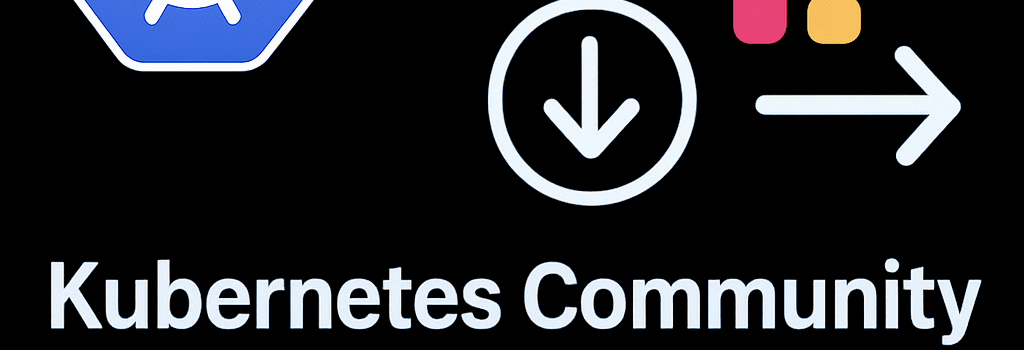Kubernetes Community Tackles Slack Downgrade and Migration

Background
Kubernetes Slack has operated under a customized enterprise-grade workspace provided by Slack HQ for over a decade. This premium arrangement allowed unlimited message retention, up to 50GB of file storage, and the integration of thousands of community-driven apps. However, Slack announced that it can no longer sustain this dedicated support due to the workspace’s scale—regularly hosting over 150,000 active users and generating tens of millions of messages annually.
Impending Changes on June 20
Effective Friday, June 20, the Kubernetes workspace will be downgraded to Slack’s free tier. The free tier enforces:
- Retention limit of 90 days for message history.
- Maximum of 10 active integrations and apps.
- Limited access to advanced workflow automations (capped at a single predefined workflow).
- Constraints on voice and video call durations and participant counts.
Channel administrators and private group owners should export critical information and documentation prior to the cut-off date. The Kubernetes Slack Admin team will coordinate archive exports and handle integration shutdowns, but individual stakeholders must proactively back up pinned messages, shared files, and channel logs.
Technical Limitations of Slack Free Tier
Downgrading to the free tier introduces significant technical constraints:
- API Rate Limits: The free plan lowers the rate limit to 50,000 requests per minute across the entire workspace, potentially throttling CI/CD bots and monitoring integrations.
- App and Bot Quotas: Only 10 active apps are permitted, down from hundreds previously in use. This affects GitHub bots, CI notifications, and custom slash commands.
- Workflow Automation: Automated workflows are capped at one, limiting complex multi-step processes such as Kubernetes release notifications or automated channel triage.
- Compliance and eDiscovery: Tools for eDiscovery and data export are disabled, complicating audit requirements and retention policies for enterprises relying on Kubernetes.
Alternative Platforms Under Consideration
The Cloud Native Computing Foundation (CNCF) Projects Staff have evaluated several options, including managed and self-hosted solutions.
Discord: Features and Integrations
Discord presents a viable alternative thanks to:
- Unlimited message history and generous file upload caps (up to 8MB per file on free, 100MB on Nitro).
- Role-based access control with fine-grained permissions for channels and voice rooms.
- Rich API ecosystem—supporting custom bots written in Node.js, Python, and Go.
- Voice, video, and livestream capabilities that surpass Slack’s free tier.
- Community-driven tools like GitHub role sync, automated moderation bots, and analytics dashboards.
“Discord’s scalability and robust API allow us to integrate seamlessly with Kubernetes CI pipelines, ensuring notifications and alerts remain real-time.” — DevOps Engineer at a CNCF project.
Self-Hosted Solutions: Mattermost and Rocket.Chat
For organizations requiring on-premise control over data and compliance, self-hosted platforms are under review:
- Mattermost: Offers enterprise-grade security, extensive plugin framework, and retention policy customizations.
- Rocket.Chat: Provides granular permissions, end-to-end encryption, and federated chat capabilities.
Migration Strategy and Best Practices
A successful migration involves careful planning:
- Audit Current Integrations: Inventory all Slack apps, bots, and workflows. Identify critical tools for CI/CD, monitoring, and community management.
- Data Export: Leverage Slack’s export APIs before June 20. Backup channel archives, file attachments, and user lists.
- Pilot Environment: Set up a test instance on the chosen platform. Migrate a subset of channels to assess API compatibility and performance.
- Communication Plan: Inform contributors of timelines, provide migration guides, and schedule training webinars.
Expert Opinions and Community Feedback
“Our analysis shows that Discord’s event-driven model reduces latency by 30% compared to Slack’s webhook polling approach.” — Cloud Infrastructure Architect at a major cloud provider.
Community surveys on the GitHub discussion indicate a 70% preference for Discord, citing unlimited history and free voice support as key factors.
Future Outlook for Kubernetes Collaboration
The Steering Committee will finalize the platform decision in the upcoming quarterly meeting. The focus remains on:
- Ensuring uninterrupted community engagement.
- Preserving data integrity and compliance.
- Leveraging modern APIs for CI/CD and automated workflows.
- Maintaining open governance and transparent decision-making.
For more details, refer to the official FAQ and stay tuned on the #announcements channel.